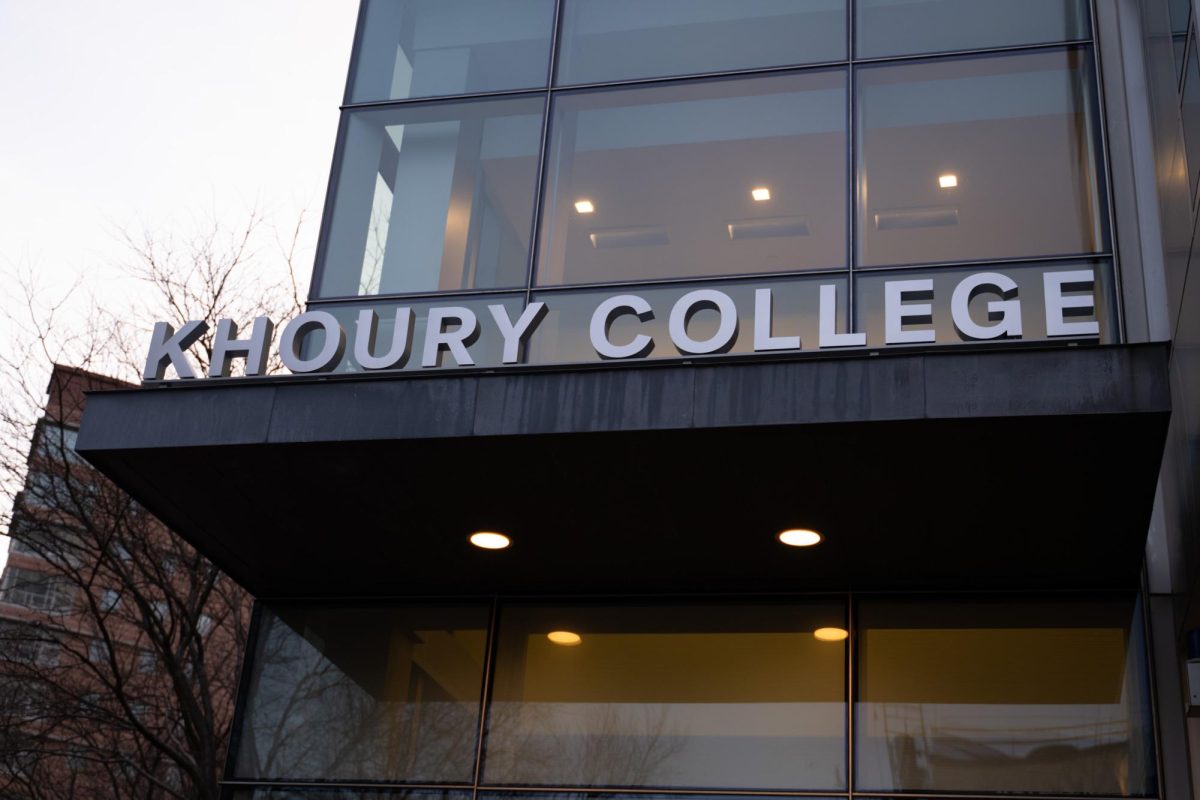By Margarita Neplokh
January 22 marked the 30th anniversary of the Supreme Court decision in the Roe v. Wade case, legalizing abortion in all 50 states. In the past 30 years, technology and medicine have come a long way, but the debate over whether abortion should be legal in this country has raged on over time.
So how has the past 30 years affected Northeastern’s community and the options a woman has when facing an unplanned pregnancy? Jessica Peterson, a freshman music industry major, is optimistic about NU and the support provided for students facing such difficult decisions.
“I think that Lane [Health Center] gives people a place to go and receive credible advice on a confidential level, especially for people who are out of state, who would not know where to go,” Peterson said.
Pamela Harris, the coordinator of health promotion and planning services at Lane, has seen the center go through many changes and has counseled many students facing unplanned pregnancies on the options they have. These options include, but are not limited to, abortion. Harris also counsels the students about other avenues, such as raising the baby or giving the child up for adoption.
Lane does not perform abortions, but they do refer students who decide to have the procedure done to a clinic that does. Northeastern’s insurance plan covers $250 for the procedure, which costs $400.
“We refer them to REPRO Associates and Planned Parenthood in Boston, as well as organizations that help girls under 18,” Harris said. “If the student decides to carry full term we refer them to a OB/GYN, and if they decide to terminate we give them referrals to clinics to call in the area and we do a post abortion check for no extra cost.”
Lane also provides emergency contraception known as the “morning after pill,” which is a contraceptive used up to 72 hours after intercourse, as well as birth control in the patch, injection and pill form.
Under the current Bush Administration and a Republican majority in Congress, the question has been raised: will abortion remain legal?
At Northeastern, as well as other college campuses throughout the country, the legality and morality of abortion still remains a topic of controversial debate, with no clear majority. A survey conducted by the Higher Education Research Institute at the University of California in Los Angeles says that “Fifty point nine percent of college students agreed with abortion being legalized.”
“I think it is important that the Roe v. Wade decision not be overturned. I personally believe that it is a bigger evil to bring a child into the world and not be able to raise it and nurture it in a proper way,” said Felipe Basso, a middler electrical engineering major,
Other students who feel similar to Basso and believe that the Roe v. Wade decision was and still is correct are active in their support of a woman’s right to choose. According to the Marantha Christian Journal in Providence, RI, three Providence College students were suspended for handing out abortion rights fliers containing an image of the Virgin Mary. The flier read, “How’s this for Immaculate Conception: Keep abortion safe and legal.”
“I think people should take responsibility for their mistakes and actions,” said Emily Smyth, a freshman behavioral neuroscience major. “I do not think an unborn child should pay for the mistakes of the parents.”
Other arguments brought to the table by proponents of the Roe v. Wade decision include neglect and improper care for a child.
“In 1973, when abortion became legal, there were 167,000 cases of child abuse and neglect reported. Yet in 1980, there were 785,100 cases – an increase of 370 percent. Furthermore, in 1987, there were 2,025,200 cases reported, which represents and increase of 1,112 percent,” according to the U.S. Department of Health and Human Services, The National Center of Child Abuse and Neglect and the National Analysis of Official Child Abuse and Neglect Reporting,
Pro-choice supporters suggest that these statistics show that neglect does not come from unintended pregnancies, but from many contributing factors such as low self-esteem, a history of physical or emotional abuse, and substance abuse.
Opponents of abortion argue the other side of the coin: since child abuse and neglect statistics have risen since the legalization of abortion in 1973, abortion does not reduce child abuse or neglect in the United States either.
Harris says that regardless of whether abortion remains legal or not, it is just one option in the situation of an unplanned pregnancy, but it is not a solution to the problem.
“I have a lot of experience with students who have been tested and found themselves pregnant and not wanting to be and that has not changed,” Harris said. “Overall sentiments seem to be split down the middle and only time and will tell how far this issue will go. But one thing is for sure, there will always be people willing to speak up for their rights, despite what side they are on.”









